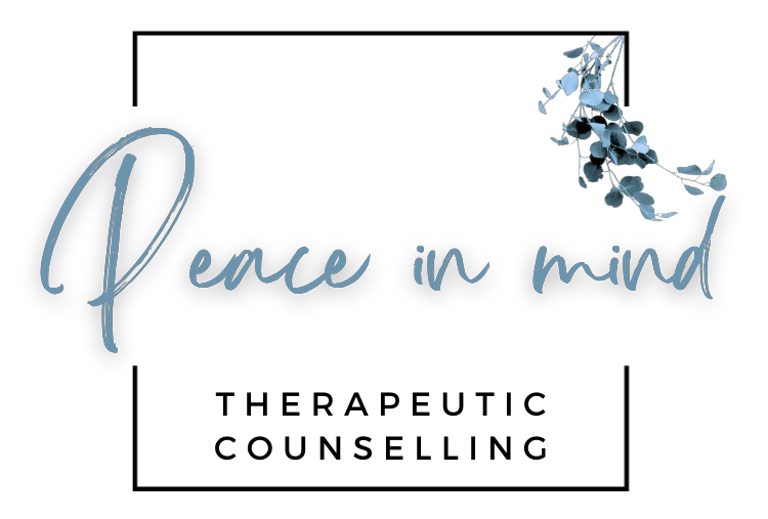
A mindful match
Finding a counsellor who's right for you
Laura Bradley
12/8/20236 min read



You've decided to start your counselling journey. A Google search of 'counsellors near me' brings up a range of options, but how do you choose the right one for you? In this blog, we'll explore the key considerations to keep in mind when choosing a counsellor.
Therapeutic approach
Finding a counsellor whose approach aligns with your preferences and needs is a good place to start. So, what are your preferences? You might be looking for:
Structure, goals and tasks
An exploratory and open ended process
Practical solutions
Reflection and empathy
Direct challenge to call out things such as illogical thoughts or negative behaviours
Once you have an idea of your preferences, find out about the therapeutic approach your potential counsellors use. Try looking on their website or social media to see how they talk about their values and how they engage with clients. See what resonates with you and who you feel drawn to.
You may also be interested in the theories that drive their approach, such as:

Person centred
An approach which places the client as expert on themselves and is rooted by a belief that everyone has potential to develop and grow. The counsellor provides an environment where the client can experience acceptance and empathy. This type of therapy can be described as non-directive.




Cognitive behavioural therapy (CBT)
An approach which focuses on challenging thinking and behavioural patterns. The aim is to recognise negative or irrational patterns and practice techniques to change thoughts and behaviours. The client is often given 'homework' to do in between sessions. This type of therapy can be described as directive and goal-orientated.


Psychodynamic
An approach which focuses on unconscious thoughts, bringing them into the client's awareness and developing a deeper understanding of their feelings. Often this will involve exploring the past, particularly childhood experiences. This type of therapy is usually carried out over a longer period of time.


Transactional analysis (TA)
An approach which looks at the interactions a client has with others and the 'ego-states' from which each person behaves in the transaction. The three main ego-states are parent, adult and child (often referred to as the PAC model). This type of therapy can often involve educating the client in these types of models, to help them recognise and change their behaviour.

The above is just a selection of theoretical approaches a counsellor may draw upon. There's no right or wrong approach - each have their own benefits and suit different clients and situations. Some counsellors stick firmly to one approach. Others integrate multiple theories into their approach.
By now you may have an idea of who you want to have an initial conversation with, which leads us on to the next consideration…
The therapeutic relationship - are you compatible?
Many counsellors will offer a free consultation or assessment session before you decide whether to go ahead with counselling. This is a chance for you both to assess compatibility with each other. It also allows you to ask questions, so you may want to jot a few down before the session.
After speaking with the counsellor, you'll probably have a gut feeling about this person and whether they're the right fit for you. But if your gut isn't feeling so clear, here are some things to think about:
How comfortable did you feel talking to them?
Did you feel heard, understood and respected?
Did they come across as genuine and trustworthy?
Did they give you the information you wanted and answer your questions?
Were they clear about things such as their fees?
Qualifications and training
Most of this blog is aimed at giving you food for thought, but if there's one area I'd give a recommendation on, it's choosing a counsellor that's qualified (*with one exception - see below). The counselling world isn't regulated in the UK, meaning anyone can call themselves a counsellor or therapist. A qualified counsellor will have achieved a minimum of a level four diploma (or equivalent) in counselling or psychotherapy. Most counsellors will state their training background on their website, but don't be afraid to ask about this if it's not clear.
*Note: I do have one exception to the recommendation of ensuring your counsellor is qualified. Every qualified counsellor will have completed at least one placement where they saw clients as a trainee. Trainees work in agencies, such as charities and counselling organisations. They're supported by the agency management, their tutors and a clinical supervisor. They will have been assessed by their tutors as being fit to practice before seeing clients. So if you come across an agency that provides access to trainees, give them some consideration.
In addition to qualifications, you may also be interested in other training or experience the counsellor has as part of their continued professional development. Someone who actively seeks to enhance their skills and stay updated on the latest therapeutic approaches suggests a dedication to providing a quality service.
Another tip is to check if your potential counsellor is a member of a professional body. This demonstrates accountability and a commitment to practicing in a safe and ethical way. Examples of professional bodies in the UK are:
British Association and Counselling and Psychotherapy (BACP)
National Counselling and Psychotherapy Society (NCPS, previously known as NCS)
UK Council for Psychotherapy (UKCP)
A cultural connection
You may have a strong preference for a counsellor with a particular identity, for example gender, age, race, ethnicity, sexual orientation, etc. This may be because you're looking for someone who can relate to your world, values and traditions. Or you may want someone who specifically doesn't share your identity, perhaps to experience an environment without any cultural expectations.
You may not have a preference, but feel it's important to find someone who understands and respects diverse cultural backgrounds. A culturally sensitive counsellor will recognise and value the influence of culture on a person's experiences and perspectives. They may not have the same background as you, but they will listen to understand what it's like for you. They will educate themselves and not expect you as the client to teach them. They will have an awareness of their own cultural identity, ensuring it doesn't lead or direct your therapy.
Cost and accessibility
Yes we do need to talk about money! This may feel uncomfortable for some, but it's important to address the financial aspects upfront. There are two elements to this:
Affordability
Value
Ultimately, you will know what's affordable for you. If this is a big factor in your decision, ask about fees if this information isn't available on the counsellor's website. Some counsellors offer concession rates, for example to students or people on low incomes. If private counselling is beyond your current level of affordability, of course you have the option of speaking to your GP. But appreciating waiting lists are long, it can also be worth seeing if there are any charities or community organisations that offer discounted or free therapy - do note there are often waiting lists for these too. And some employers have employee assistance programmes (EAP) that can offer a limited number of sessions.
While cost is important, also consider the value you receive. Counselling can lead to positive changes in various aspects of your life, making it a valuable investment in your wellbeing.
You may also want to think about the logistics of sessions, for example:
If you want face to face counselling, how far are you willing to travel? Does the venue accommodate any accessibility needs you have?
If you want virtual counselling, either by phone or video call, do you have a private and comfortable space you can do this from?
Does the counsellor have availability that's convenient for you?
One more thing
It's worth knowing many clients find a counsellor by word of mouth. If others are comfortable enough to share their counselling experience with you, ask for their feedback and recommendations.
I wish you all the best in finding your mindful match. If you'd like to find out more about my counselling practice, you can find me at https://peaceinmind.co.uk or @peace.in.mind.therapy on Facebook and Instagram.


